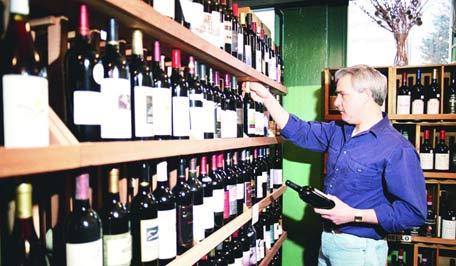China EU trade disputes: Red wine

 0 Comment(s)
0 Comment(s) Print
Print E-mail CNTV, August 28, 2012
E-mail CNTV, August 28, 2012
More news on trade disputes between China and Europe. Chinese wine producers have asked the government to investigate whether wine makers in the EU are getting off too easy with wine sales thanks to government subsidies. How is the trade war effecting the Chinese wine business?
Red wine has taken a leading role in the trading game.
At the request of domestic wine producers, the China Alcoholic Drinks Association filed a complaint to the Ministry of Commerce, accusing EU wine makers of selling their products below market value and receiving unfair government subsidies.
|
|
|
Red wine has taken a leading role in the trading game?between China?and Europe. ? |
The chairman from one of Beijing's renowned wine association elaborated on the price differences.
Zhu Dongfei, Chairman of Sino-Overseas Famous Chateaux Fine Wine Assoc., said, "Actually domestic and overseas wine prices are not comparable. But indeed, European wineries have relatively better cost advantages, especially for low-end wines. European wine producers have lower costs both in land resources and human capital during wine production - hence more advantage in producer prices."
Some industry insiders predict the complaint could be viewed as a reaction to moves by the EU to launch a similar probe into China's solar panel exports.
According to the association, wine imports from the EU to China jumped from less than 36 million litres in 2008 to almost 170 million litres last year.
Zhu said, "Judging from the development of Chinese wine, I think we entered the global market too early and the international competitiveness of Chinese wine still needs to grow. China has little wine exports, business is mainly concentrated in the domestic market."
Meanwhile, European wine producers increased their share of the Chinese market to over 14 percent last year, from not even 5 percent in 2008.
Zhu said, "With the rapid increase of inexpensive foreign wine imports to China, China's wineries are facing increased pressures from declining revenues and quality concerns."
A competitive market needs to be free of distortions such as subsidies and tariffs. Experts say the competition from the EU wine producers ought to encourage a faster development of quality Chinese wine, however hopefully this competition will be found on a level of international playing field.






